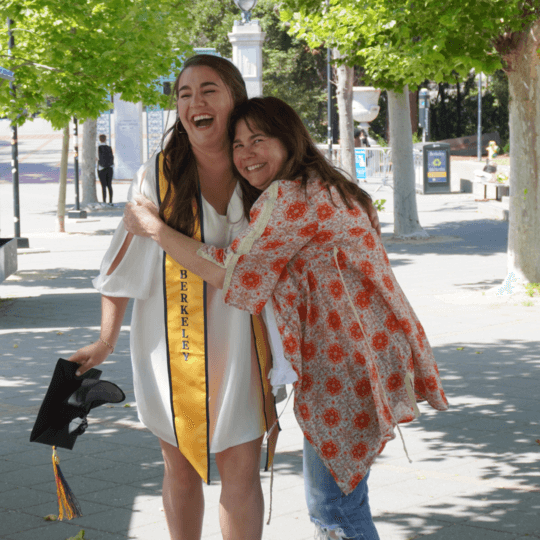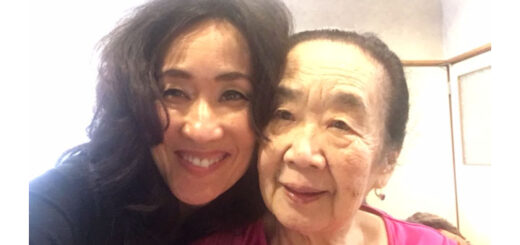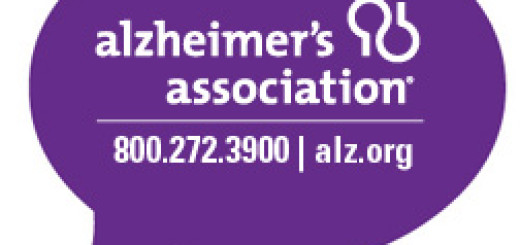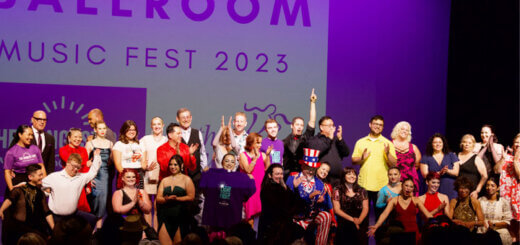Caregiving at a younger age: An unexpected detour
In June 2022 we held an online event for younger caregivers. During this event, Rudy Brandt discussed her journey of becoming a caregiver while in her early 20s. She was kind enough to allow us to publish her remarks.
Hello. My name is Rudy Brandt and I am a 24 year old caregiver for my mother, Lauren.
My mom just received her early onset Alzheimer’s diagnosis at UCSF last month, but I have been her full time caregiver for about two years while we’ve been on the journey towards an answer – and still now, as we are confronting the reality of this disease.
When it first started to become apparent that my mom wasn’t herself, and needed help with things that used to come naturally to her, I stepped up situationally to help her with things like securing a new apartment, booking doctors appointments, and remembering what to buy at the grocery store. Slowly, and all too quickly, what was situational became everything, all at once. There was no deciding moment, no true understanding that I was becoming a caregiver, just a sudden necessary shift given my mom’s needs, the ever changing nature of this disease, and our complicated family structure. So, here I am – “caregiver” scribbled messily at the end of the list of the roles that define my life and make me who I am: daughter, sister, friend, partner, teacher, learner, colleague, and now, caregiver.
In the time since taking over my mother’s care, finding and maintaining balance has been the hardest part of my new role. Sure, holding my mom’s hand through not one, not two, but three spinal tap procedures was no piece of cake, but balance evades me every single day. Balancing my “normal” life, with my “caregiver” life poses unique challenges, like driving 30 minutes in one direction to get to my mom’s and 30 minutes in the other to get to work, and planning to have people stay with my mom before I can go on a not-so-spontaneous getaway, not to mention the time management maneuvering that gives my old college course planning skills a run for their money.
There are not enough hours in the day, not enough moments to myself, not enough tabs on my internet browser, and certainly not enough take-out menus to assist in the job that my friend Marisa has deemed “the ultimate sacrifice.” And it is a sacrifice. I am struggling to maintain a relationship with my boyfriend, to make time for my friends, to excel in my budding career, and to have fun – since everyone who I never asked keeps telling me how your 20’s are supposed to be about having fun. And caregiving is not a night out at your favorite bar. Even if karaoke is involved more often than you’d think…
The unique position of being a young caregiver is why I have been asked to speak today. As I am sure other young caregivers know, this job often feels like I am building a piece of IKEA furniture with no instruction manual…and no tools… in the dark. As someone just establishing an adult life, there is really no “real life” experience that I can apply to this journey. I just got the hang of doing my own taxes and now I have to do them for two. It truly hasn’t been that long since my parents were my legal guardians, and now I am a legal guardian for one of my parents.
There is also a lack of what I like to call “natural resources” when you are a young caregiver. I don’t have a friend from high school who just so happens to be a neurologist or a next door neighbor whose husband is an estate planning attorney. I can’t turn to my peers for their skill sets because, like me, they’re just getting started. Figuring out who they are going to be. The difference is that they seem to have all the flexibility in the world necessary to find those answers, whereas I feel very limited in my own self-exploration, not being able to stray too far from the caregiving path and its responsibilities.
As a young caregiver it is also hard to turn to peers for their general support. It can be frustrating to hear friends’ updates about their social lives, when my role as caregiver has meant that I’ve had to miss out more often than not. I find myself wishing that I could “just be 24.” Even for 20 minutes. I’ve been blessed with some really great friends who go out of their way to inquire about my mom and even ask me how they can best support me… but even they know that they will never understand what I’m going through. And that can be excruciatingly lonely.
Even my experience in caregiver support groups can be colored by my age. I remember once hearing someone share that they had to move their loved one into their home. At first I was filled with sadness and anxiety at the thought that I might have to do that myself. Soon after, I was filled with panic, realizing that I don’t even own a home.
Still, it is always comforting to hear experiences from other people going through what I am going through, at any age and any stage.
Like all caregivers, I’m learning on the job. As a 24 year old caregiver, that has meant flooding my Instagram follows with dementia influencers, who outline the ins and outs of everything from diet, in-home care, emotional support animals, exercise, navigating insurance and more.
It’s certainly not the latest trends gracing my friends’ Instagram feeds, but it’s what I spend my nights scrolling through, especially when I can’t sleep.
Even with all of those sleepless nights, the uncertainty, and the pain, stepping into this caregiving role at my age has been eye opening and transformational. I have grown in countless ways and continue to surprise myself with my instincts.
I have learned so much, yes, about the U.S. healthcare system, but also about myself. I have learned to trust myself and my confidence has flourished. A girl who was a self-identified rule follower who colored strictly inside the lines, is now a fierce advocate – challenging the norm (and sometimes even the nice lady from the customer service helpline) until I find the best path forward.
And it is an absolute honor to be able to take care of the woman who devoted her life to taking care of me. I am a proud daughter and I am a proud caregiver.
If you think your loved one has Alzheimer’s or another dementia or would like to find out more about the Alzheimer’s Assocation and how we can help, please call the Alzheimer’s Association 24/7 Helpline at 800.272.3900. The Helpline is available around the clock, 365 days a year. Through this free service, specialists and master’s-level clinicians offer confidential support and information to people living with dementia, caregivers, families and the public.
Learn more:


















